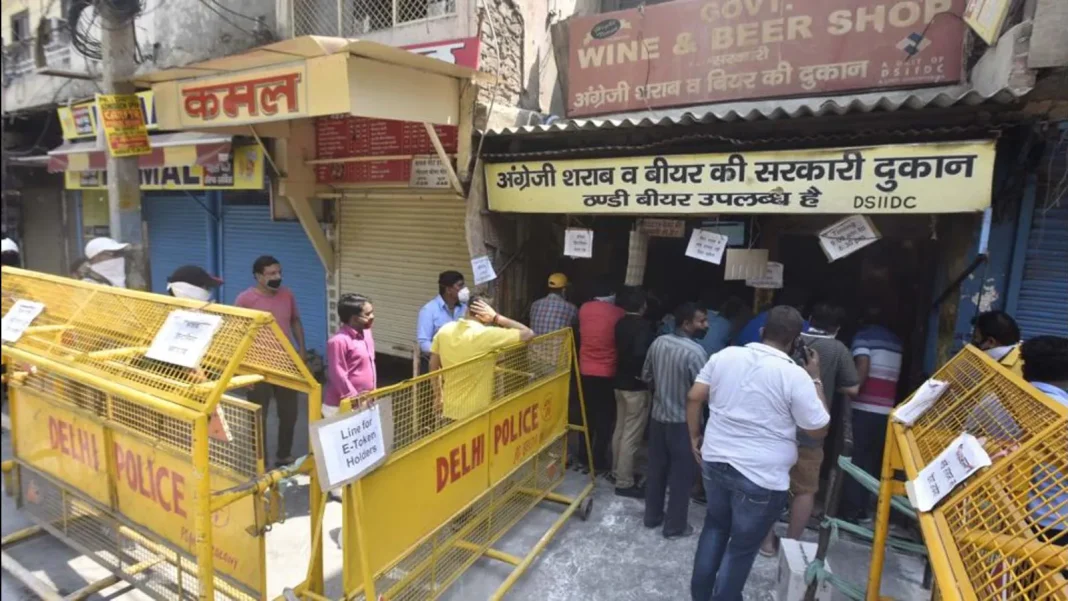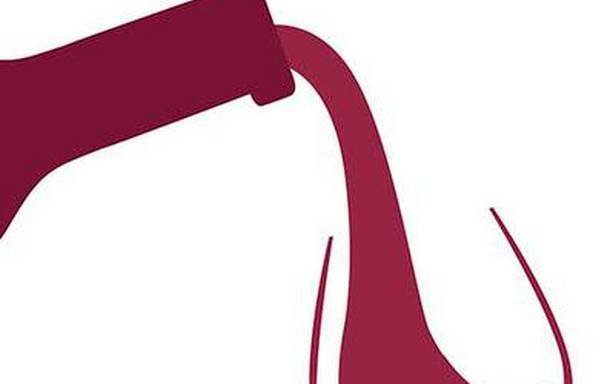The Delhi government has already earned ₹5,300 crore from auctioning alcohol licences for 20 of the city’s 32 zones and looks set to double its excise revenue by netting a record ₹10,000 crore in the first few months of the new liberalised liquor policy, a senior official said on Friday.
The government estimates to earn ₹3,180 crore from the auction of licences in the 12 zones left, and another ₹650 crore from excise duty, import fees, value added tax and other licence fees, the official added on condition of anonymity.
Another ₹900 crore to ₹1,000 crore is expected to come from licensing of new brands, distributor licenses, etc, the official added.
This will mark a new record for the Capital, and push annual earnings growth rate from the current 5-7% to over 30% — highlighting that a new excise policy, which aims to reform the city’s liquor business by improving user experience, cleaning up the liquor mafia and eradicating pilferage, is making an impact within two months of being adopted.
The average revenue of the city over the past three years stood at around ₹5,500 crore annually, according to government data. The new policy was implemented on June 11.
When asked, the official did not elaborate on the government’s initial expectation of the likely earnings.
Sixteen zones were auctioned on Thursday and four on Friday.
“The Delhi government’s excise policy has turned out to be an all-around smashing success by breaking all estimates and targets of revenue generation from the bidding process. The policy is set to take up excise revenue figures to ₹10,000 crore in the first year of implementation. This is a new record,” said the official cited above.
Major changes in the liquor policy include slashing the legal drinking age from 25 to 21, getting the state out of the retail alcohol business, overhauling a labyrinthine tax system, reducing the number of dry days in a year from 21 to 3, and improving spread and service.
The Delhi Excise (Amendment) Rules, 2021 divided the city into 32 zones and licences were auctioned per zone, instead of per shop, to private players.
The official quoted above said that the city’s new excise policy drafted by the Aam Aadmi Party (AAP) government earlier this year is expected to help generate revenue beyond ₹10,000 crore in the first year of its implementation.
“The government has already earned around ₹5,300 crore in the initial rounds where licenses in 20 zones were awarded. A zone-wise revenue of around ₹265 crores each is further expected to be received from the bidding of the remaining 12 zones [which amounts to ₹3,180 crore],” added the official.
The excise department also said the new policy of auctioning licence per zone was aimed at minimising corruption and promoting fair competition in the liquor trade.
“The tender process forbids a bidder from bidding in more than two zones, which will bring in more players into the market, thus preventing instances of monopolisation. Under the previous excise policy regime, the yearly growth rates in revenue were limited to 5 to 7%,” said the official, comparing earlier revenue growth rates to the current growth estimates of 35%.
Under the new policy, retailers are free to decide the selling prices in a competitive environment, rather than an MRP being mandated by the government. Each zone will have at least 27 liquor vends — all of which will go to one successful bidder.
When the auction opened on Thursday, the reserve bidding price was set at ₹221 crore for each zone but the licences were awarded at an average premium of 20% with the average bid price being ₹265 crore, said the official.
The highest bid was received for the New Delhi zone at a 45% premium of ₹315 crores.
“Under the previous excise regime, a total of ₹6,358 crore was collected in the fiscal year 2019-2020 after collection of excise from Indian & foreign liquor, VAT collected from wholesale and retail sales, excise and retail licensing fees,” said the official.
The government also hopes that the new policy will help plug counterfeit liquor and smuggling of non-duty paid liquor from neighbouring states. “This will help the government recover large amounts of lost business,” said the official.
The Delhi government, on June 28, floated tenders for new licensees for the retail sale of liquor in the national capital. Following the tendering process, on Thursday, all 32 zones were put up for auction for the first time. Twelve zones were cancelled or disqualified from the auction process as they had just one or no bidder.
Those who won a zonal auction will soon be given L-7Z or L-7V licences, which are meant for retail sale of Indian and foreign liquor (except country liquor) in Delhi.
“Prominent bidders from not only Delhi but other cities such as Hyderabad and Bangalore have won the zonal auction. This is expected to bring more innovations, experience and diversity in the retail liquor sector in Delhi. It is likely to enhance quality of service and customer experience in the coming days,” said Vinod Giri, director-general of the Confederation of Indian Alcoholic Beverage Companies (CIABC).
The above news was originally posted on www.hindustantimes.com















